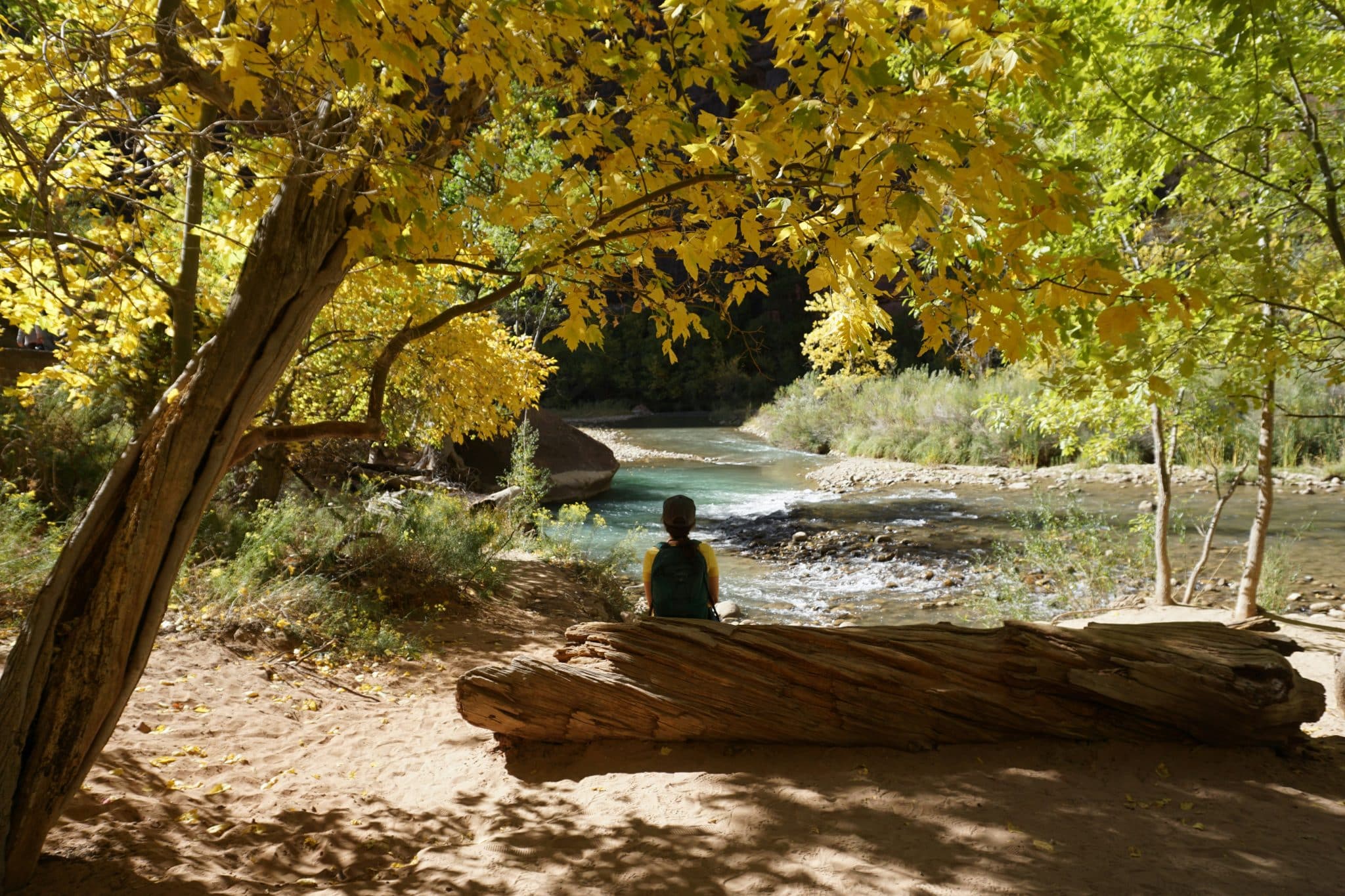Avoiding burnout: The secret of Sabbath rest throughout the week
Ps-Dr Philip Lyn // November 7, 2022, 3:30 pm

The secret of countering burnout resides in one word: Rest, says Dr-Ps Philip Lyn. Not just any rest but God's kind of rest, that allows us to regain our divine rhythm at work. Photo by Helena Lopes on Pexels.
In 2018, the unforgiving Australian outback claimed the lives of a young couple, their child and a 12-year-old boy after they suffered a flat tyre and run out of fuel.
They had chanced it by travelling on a low fuel tank and eventually died on empty.
Their bodies were eventually found 4.5 kilometres away from their abandoned car. They had attempted to walk to the nearest settlement they thought could give them water and fuel, not knowing it was an abandoned outpost.
In any case, they never made it. They had chanced it by travelling on a low fuel tank and eventually died on empty.
The sadness of this incident is matched only by the frequency with which many suffer burnout while running on near empty at work.
This often manifests as a gradual sense of being increasingly overwhelmed. And burnout eventually sets in to claim yet another victim.
Two different rests
The secret of countering burnout resides in one word: Rest. Not just any rest but God’s kind of rest. Rest allows us to regain our divine rhythm at work.
There are two aspects of rest that God commands: Firstly, resting on the Sabbath day (Exodus 20:8-11). That’s taking time off ideally one day a week to rest from our work so as to recover physically, mentally and spiritually. Secondly, the Sabbath rest (Hebrews 4:1-10).
The secret of countering burnout resides in one word: Rest. Not just any rest but God’s kind of rest.
They may sound similar, but actually, they’re quite different.
While rest on the Sabbath day is the rest that comes from setting aside time once a week, Sabbath rest on the other hand, is a cultivated spiritual posture. The Bible tells us it is something we all need to enter into.
Hebrews 4:9-11 (ESV) says: “So then, there remains a Sabbath rest for the people of God, for whoever has entered God’s rest has also rested from his works as God did from His. Let us therefore strive to enter that rest …”
So, we see, the Sabbath rest is not about resting from our work but resting from our works!
In other words, we are no longer trying to prove to God that our deeds and our discipleship efforts are what makes us acceptable to Him. We are accepted, simply and only, because of what Jesus has done, nothing else.
He has paid the full price for our sins and reconciled us to God the Father. Nothing more needs to be done to enter into His rest.
Rest on the Sabbath day ensures vitality, Sabbath rest makes for longevity. One gives us a weekly boost, the other tops us up for life.
When our spirits experience this, the Sabbath rest floods our souls, and we are filled with an inner rest made up of three elements: A total surrender to God, an overwhelming gratitude to Him and relentless faith to overcome the powers of darkness!
The Sabbath rest comes simply by living under grace, not the law. It is part of our intimate communion with God and our trust in Him even through the most harried circumstance in our lives.
Rest on the Sabbath day ensures vitality, Sabbath rest makes for longevity.
One gives us a weekly boost, the other tops us up for life and gives us stamina for the whole journey.
One provides a second wind for the immediate tasks, the other, stamina for the whole journey. One is about rested inactivity, the other is about resting in an eternal certainty.
Both are vital, both are essential and both are from God!
Avoiding burnout
While working as a bi-vocational pastor, I have found that a balance of both time and posture is essential to meet the challenges of the weekly work as a doctor-pastor and as well as the long-term meaning and purpose of my calling.
After more than 20 years of this combined vocation, and realising I am still enjoying both spheres of my work with as much enthusiasm and passion as I did at the start, I realise there must be some things that I must have done right in this journey.
Work and rest are not opposing forces, but elements of a rhythm that makes enduring productivity possible.
Some life-saving discoveries are often only made serendipitously over a protracted period of time!
Work and rest are not opposing forces, but elements of a rhythm that makes enduring productivity possible.
One of the best decisions I made as a doctor was to take a half day off each week, usually on a Wednesday afternoon. This pause, taken at midpoint through the stresses of a working week, gave me space to surface for personal air and to meet my family at home and connect with them. Instead of seeing my kids only in the evenings, here was one day I could see them in the daylight hours after school, talk about things other than school and go out and do a few things with them. I valued these special Wednesdays.
Mercifully, while the kids did feel I could have spent more time playing with them, listening to them or growing to understand them better as they grew and changed, they still felt I had mostly been there for them in their school years. (That’s what they graciously tell me as adults now.)
It also gave me some space to think and plan for the coming Sunday service. Weekends as you can imagine are anything but “free” time for a doctor-pastor. Furthermore, I usually emerge from a busy Sunday to plunge into a full working week on a Monday. So a mid-week break was vital for survival and renewal.
Why the Sabbath day?
But why is the Sabbath day necessary? The simple answer is we were designed to rest in between our labour.
Learning to trust God for our provision is an ongoing challenge, particularly if we are prone to compulsive work habits.
This is part of what “Dei” means in the way we function (Genesis 1:27). We rest just as God did, not of necessity, but as a choice.
So, “God blessed the seventh day and made it holy, because on it God rested from all the work that He had done in creation” (Genesis 2:3 ESV).
The choice is about seeking to obey the fourth Commandment and following God, just as He did in His rest (Exodus 20:8-11).
But why? Because ultimately Sabbath is a form of worship in that a day of rest is a tacit attestation that our life is not defined by work alone but centred around who God is. It also a conviction that the “rest” He has modelled for us to follow is the best design for productivity and longevity in our lives.
The Sabbath day observance is a regular repudiation of the covetousness for more.
Furthermore, observing the Sabbath is an act of trust. We dare trust God to provide for our needs, rather than working all-out to ensure our provision. This can be difficult – both for those who struggle with the prospect of not having enough and for those who struggle with the peril of not recognising what is enough.
Learning to trust God for our provision is an ongoing challenge, particularly if we are prone to compulsive work habits.
This is a hard lesson to learn, and it usually takes trial and error for us to grasp it, as Israel discovered when depending on God’s provision of manna in the desert (Exodus 16:1-36).
The Sabbath day observance is a regular repudiation of the covetousness for more.
It is a statement to us that there are other things in life besides producing and consuming. And that there is more to our identity than what we do or what we produce.
It is a reminder that we are ultimately dependent on God’s provision and grace.
The New Testament Sabbath
Jesus was never against the Sabbath per se. He was against it being weaponised by certain quarters to control people for their own religious and legalistic ends.
Jesus consistently “broke” the letter of the law of the Sabbath in order to point to its overarching spirit.
In so doing, the Pharisees marred the spiritual image of the Father and distorted the intent of the God who gave the Ten Commandments.
Jesus came to restore that image and design. So He consistently “broke” the letter of the law in order to point to its overarching spirit. He said to them: “The Sabbath was made for man, not man for the Sabbath.” (Mark 2:27)
For instance, Jesus and His disciples plucked corn when hungry on the Sabbath (Luke 6:1-5) and in many other instances He healed on the Sabbath (Luke 6:9, 13:16, 14:5). Jesus anchored His understanding of the Sabbath in the needs of people.
By meeting human needs on the Sabbath, the commandment is fulfilled, not abolished. Here is the biblical suggestion that keeping the spirit of the Sabbath is not an absolute cessation of work as interpreted by the law but an understanding of God’s heart with regards to work.
Beyond the day itself
The ancient Israelites, according to the book of Hebrews, failed to take God up and on his offer of this rest because of disobedience. But followers of Jesus can access the rest that God promises because of Christ’s obedience.
So, rest is now much more than a weekly reset button. It is the affirmation of a special relationship with God and a privilege extended by a God to us His people so we may delight in Him and enjoy Him forever.
Jesus anchored His understanding of the Sabbath in the needs of people.
The Sabbath is not just special because it is one day in the week. It is special because God is present and He is holy on that one day as much as all the other days of the week. Rest is the gracious outworking of God’s desire to manifest Himself in an intimate and joyful relationship with us. All the time!
I am aware that there are seasons in life where we may not be able to garner “space” to experience the rest we might need. Being new parents, for example, may not allow us any day off from caring for the needs of a new baby. Start-up entrepreneurs, who often have one to whom they can delegate all the necessary work, may find it impossible to set aside enough time for rest.
In these seasons even if we are not able to rest properly, we need not feel guilty, but instead turn to God to live under grace with the hopeful expectation that a return to the divine rhythm of rest and work will come in the near future as babies get older, or as our start-up businesses develop better capacities.
The Bible tells us: “A Sabbath rest still remains for the people of God” (Hebrews 4:9), both from an eternal perspective and in this lifetime. It means this rest is always there for us.
Under grace we enter His presence and, in doing so, we are always able to enter His rest. Living in this rest and taking time out weekly to rest, will fire-proof us from burnout.
This was first published in The Invasive Kingdom: Transforming Today’s Believers Into Workplace Ministers by Pastor-Dr Philip Lyn and is republished with permission. The book can also be purchased at Manna Bookstore.
FOR MORE ARTICLES LIKE THIS:
“If God doesn’t heal, then what?” A question Pastor Philip Lyn grappled with
“If God doesn’t heal, then what?” A question Pastor Philip Lyn grappled with
We are an independent, non-profit organisation that relies on the generosity of our readers, such as yourself, to continue serving the kingdom. Every dollar donated goes directly back into our editorial coverage.
Would you consider partnering with us in our kingdom work by supporting us financially, either as a one-off donation, or a recurring pledge?
Support Salt&Light



